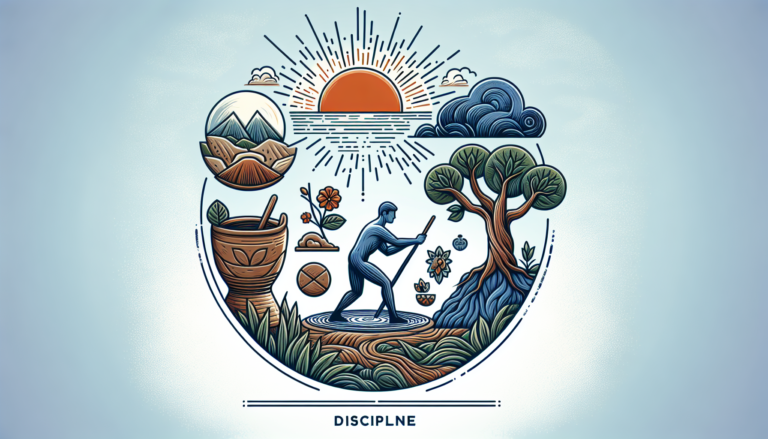Nurturing Self-Belief And Confidence
Have you ever doubted yourself or lacked confidence in your abilities? In today’s fast-paced and competitive world, it’s not uncommon to feel this way. However, it’s important to remember that self-belief and confidence are essential for personal growth and success. Nurturing these qualities can positively impact various aspects of your life, from relationships to career advancement. In this article, we will explore some practical strategies and tips to help you cultivate and strengthen your self-belief and confidence, empowering you to reach new heights and achieve your goals.

Understanding self-belief and confidence
Defining self-belief and confidence
Self-belief and confidence are two crucial aspects of our psychological well-being and personal development. Self-belief refers to having a strong belief in your abilities, skills, and worthiness. It is the unwavering faith in your potential to overcome challenges and achieve success. Confidence, on the other hand, is the assurance and self-assurance in your own abilities, which allows you to approach life with a positive mindset and a sense of self-assurance.
The importance of self-belief and confidence
Self-belief and confidence are vital for personal growth and success in all areas of life. When you have a strong belief in yourself, you are more likely to take risks, pursue your goals, and overcome obstacles. Self-belief fuels motivation and determination, helping you stay focused and committed even when faced with setbacks. Confidence, on the other hand, empowers you to embrace new opportunities, communicate effectively, and build meaningful relationships. It allows you to showcase your skills and talents to the world with a sense of authenticity and poise.
The link between self-belief and confidence
Self-belief and confidence are closely intertwined and mutually reinforcing. When you have a strong self-belief, it enhances your confidence and vice versa. Believing in yourself gives you the confidence to take on challenges and the belief that you are capable of handling them. As you face and overcome these challenges, your confidence grows, further strengthening your self-belief. This positive cycle of self-belief and confidence creates a solid foundation for personal and professional growth, enabling you to reach your full potential.
Identifying and overcoming self-doubt
Recognizing self-doubt
Self-doubt is an internal voice of uncertainty and negativity that undermines our belief in ourselves and our abilities. It manifests as feelings of insecurity, fear, and inadequacy, making us question whether we are capable or deserving of success. Recognizing self-doubt is the first step in overcoming it. Pay attention to your thoughts and emotions, and notice when self-doubt arises.
Understanding the causes of self-doubt
Self-doubt can stem from various sources such as past failures, societal expectations, and comparison to others. It can also be influenced by negative experiences or criticism from others. Understanding the root causes of self-doubt can help you address and overcome it. Reflect on the experiences and situations that trigger self-doubt and consider how these beliefs may have been formed.
Challenging and reframing negative self-talk
Negative self-talk is a common manifestation of self-doubt. It involves the repetitive and critical thoughts we have about ourselves. Challenging and reframing negative self-talk is essential in building self-belief and confidence. Replace negative thoughts with positive and empowering affirmations. Remind yourself of your past successes and strengths. Surround yourself with supportive and positive influences that counteract negative self-talk.
Building resilience and self-compassion
Resilience is the ability to bounce back from setbacks and adversities. Developing resilience is crucial in overcoming self-doubt and building self-belief. Practice self-compassion by treating yourself with kindness and understanding. Embrace failures and setbacks as opportunities for growth and learning. Foster a growth mindset, knowing that mistakes are a natural part of the learning process.
Building a growth mindset
Understanding the concept of a growth mindset
A growth mindset is the belief that our abilities and intelligence can be developed through dedication and hard work. It is the understanding that talents and skills can be cultivated and improved over time. Embracing a growth mindset is essential in nurturing self-belief and confidence. It allows you to view challenges and setbacks as opportunities for growth and learning, rather than as indicators of failure or inadequacy.
Embracing challenges and setbacks as opportunities for growth
Rather than avoiding challenges or fearing setbacks, embrace them as opportunities for personal development. Approach difficult tasks with a positive attitude and a willingness to learn. View failures as stepping stones towards success, and analyze them to identify areas for improvement. Embracing challenges and setbacks with a growth mindset fosters self-belief and confidence in your ability to overcome obstacles.
Cultivating a positive attitude towards learning
Learning is a lifelong journey, and cultivating a positive attitude towards it is vital for self-belief and confidence. Value the process of learning and embrace new knowledge and skills. Be open to feedback and constructive criticism, recognizing that it is an opportunity for growth. Celebrate your accomplishments and continuous improvement, no matter how small they may seem. A positive attitude towards learning encourages self-belief and confidence in your ability to acquire new skills and knowledge.
Setting realistic goals and taking action
Setting realistic and achievable goals is crucial in building self-belief and confidence. Break your goals down into smaller, manageable steps, and create an action plan to guide you towards their attainment. Taking consistent action towards your goals enhances self-belief, as it provides evidence of your capability to achieve what you set out to do. Celebrate each milestone along the way, reinforcing your belief in your abilities.
Developing self-awareness
Exploring your strengths and weaknesses
Self-awareness is a key component of self-belief and confidence. Take the time to explore and understand your strengths and weaknesses. Identify your unique talents and skills, as well as areas where you may have room for improvement. Emphasize and leverage your strengths, while also working on developing those areas that need improvement. Knowing yourself well enables you to build self-belief and confidence authentically.
Reflecting on past successes and lessons learned
Reflecting on past successes and lessons learned is a powerful way to boost self-belief and confidence. Take the time to recall previous achievements, no matter how small, and acknowledge your role in their accomplishment. Recognize the skills and strengths you utilized to succeed. Similarly, reflect on past failures or obstacles and the lessons they taught you. Learning from these experiences will help you grow and build confidence in your ability to overcome future challenges.
Seeking constructive feedback
Feedback is a valuable tool for personal growth and development. Seek out constructive feedback from trusted individuals who can provide an objective perspective. Be open to receiving feedback, both positive and constructive, and use it as an opportunity for self-improvement. Remember that feedback is not a reflection of your worth as a person but rather an opportunity to better yourself and build self-belief.
Practicing self-reflection and mindfulness
Regular self-reflection and mindfulness practices can enhance self-awareness and strengthen self-belief and confidence. Set aside time for introspection and self-assessment. Mindfulness practices such as meditation or journaling can help you connect with your thoughts and emotions, fostering a deeper understanding of yourself. Engaging in these practices allows you to cultivate self-belief and confidence from a place of authenticity and self-awareness.

Setting and achieving meaningful goals
Identifying your values and passions
Setting and achieving meaningful goals starts with identifying your values and passions. Reflect on what truly matters to you and what brings you joy and fulfillment. Align your goals with these values and passions, as they will provide a sense of purpose and motivation. When your goals are in alignment with your values, they become more meaningful and increase your sense of self-belief and confidence.
Setting SMART goals
Setting SMART (Specific, Measurable, Achievable, Relevant, Time-bound) goals is essential in turning your aspirations into reality. Clearly define your goals, breaking them down into specific and actionable steps. Set timelines and targets to measure your progress. Ensure that your goals are realistic and attainable, considering your resources and capabilities. By setting SMART goals, you create a roadmap that enhances self-belief and confidence.
Creating an action plan
Once you have set your SMART goals, it is crucial to create an action plan to guide your journey. Break down your goals into smaller tasks and prioritize them based on their importance. Establish a timeline and allocate specific resources and responsibilities. Creating a detailed action plan provides a clear pathway towards your goals, enhancing your self-belief and confidence as you make progress.
Celebrating milestones and learning from setbacks
As you make progress towards your goals, take the time to celebrate milestones along the way. Acknowledge and appreciate your achievements, no matter how small. Celebrating milestones boosts your self-belief and confidence, reminding you of your capabilities. At the same time, setbacks and challenges are inevitable. When faced with setbacks, reflect on the lessons they offer and adjust your approach accordingly. Embracing setbacks as opportunities for growth strengthens your belief in yourself and your ability to overcome obstacles.
Cultivating a supportive network
Surrounding yourself with positive influences
Your environment plays a significant role in shaping your self-belief and confidence. Surround yourself with positive influences: people who uplift and inspire you. Seek out individuals who believe in your potential and support your aspirations. Positive influences can provide encouragement, guidance, and constructive criticism, boosting your self-belief and confidence.
Building relationships with people who believe in you
Building relationships with people who believe in you is crucial for nurturing self-belief and confidence. Connect with individuals who genuinely support your goals and dreams. Share your aspirations with them and allow them to provide guidance and motivation. Building these relationships fosters a sense of accountability and support, empowering you to believe in yourself and your abilities.
Seeking mentorship and guidance
Mentorship and guidance are invaluable in developing self-belief and confidence. Seek out mentors or individuals who have achieved success in areas of interest to you. Their wisdom, experience, and support can provide valuable insights and guidance on your journey. Learn from their experiences and emulate their positive qualities and mindset. Mentorship helps you cultivate self-belief and confidence by providing you with a roadmap and role models to follow.
Contributing to a supportive community
Contributing to a supportive community creates an environment that nurtures self-belief and confidence. Find opportunities to give back, whether through volunteering or supporting others in their endeavors. Actively participate in a community that embraces collaboration and encouragement. By helping others succeed, you reinforce your own belief in the power of community support and strengthen your own self-belief and confidence.
Practicing self-care and self-compassion
Prioritizing self-care
Self-care is a fundamental aspect of nurturing self-belief and confidence. Prioritize your physical, emotional, and mental well-being. Engage in activities that bring you joy and relaxation. Set boundaries to protect your time and energy. Make time for rest, exercise, healthy eating, and activities that recharge you. Prioritizing self-care not only boosts your self-belief and confidence but also enhances your overall well-being.
Setting healthy boundaries
Setting healthy boundaries is essential for self-belief and confidence. Establish clear boundaries in your personal and professional relationships to protect your well-being and values. Learn to say no when necessary, ensuring that your time and energy are allocated to what truly matters. By setting healthy boundaries, you communicate to others and yourself that your needs and values are essential, bolstering your self-belief and confidence.
Embracing self-compassion and forgiveness
Self-compassion and forgiveness are key components of self-belief and confidence. Treat yourself with kindness and understanding, especially during times of failure or self-doubt. Embrace imperfections and mistakes as part of the human experience. Practice forgiveness, both towards yourself and others, allowing you to let go of past errors and move forward with increased self-belief and confidence.
Taking care of your physical and mental well-being
Physical and mental well-being are interconnected with self-belief and confidence. Take care of your physical health through regular exercise, adequate sleep, and a balanced diet. Engage in activities that promote mental well-being, such as mindfulness practices, hobbies, and stress management techniques. Nurturing your physical and mental well-being enhances self-belief and confidence, as you feel more energized, focused, and in control of your life.
Stepping out of your comfort zone
Recognizing fear and discomfort as opportunities for growth
Stepping out of your comfort zone is essential for fostering self-belief and confidence. Recognize that fear and discomfort are natural responses to the unknown. Instead of letting these emotions hold you back, view them as opportunities for growth and personal development. Embrace the discomfort, acknowledging that it is a necessary step towards expanding your capabilities and building self-belief.
Taking calculated risks
Taking calculated risks is a powerful way to nurture self-belief and confidence. Assess the potential risks and rewards of a particular endeavor, weighing the potential outcomes. Develop a plan and take action with careful consideration. Even if the outcome is uncertain, taking calculated risks demonstrates your faith in yourself and your ability to handle whatever comes your way.
Trying new experiences and challenging yourself
Trying new experiences and challenging yourself is crucial in building self-belief and confidence. Explore unfamiliar territories and step outside of your comfort zone regularly. Engage in activities that push your limits and require you to acquire new skills or knowledge. Each new experience expands your comfort zone, reinforcing your self-belief and confidence in your ability to adapt and thrive.
Learning from failures and embracing resilience
Failure is an inevitable part of any journey towards self-belief and confidence. Embrace failures as opportunities for growth and learning. Analyze the lessons they offer and adapt your approach. Cultivate resilience, bouncing back from setbacks and using them as stepping stones towards success. Learning from failures and embracing resilience strengthens your self-belief and confidence, as you recognize that setbacks do not define you but rather provide valuable insights for future endeavors.
Celebrating achievements and practicing self-appreciation
Recognizing and acknowledging your achievements
Recognizing and acknowledging your achievements is crucial for nurturing self-belief and confidence. Take the time to reflect on your accomplishments, no matter how small or large. Celebrate your successes and express gratitude for the effort and dedication you put into your goals. Acknowledging your achievements reinforces your self-belief and confidence, providing evidence of your capabilities.
Cultivating a positive mindset and gratitude
Cultivating a positive mindset and gratitude is essential for sustaining self-belief and confidence. Focus on the positive aspects of your experiences and challenges, even when faced with difficulties. Embrace gratitude for the opportunities and resources available to you. Cultivating positivity and gratitude enhances self-belief and confidence, as you approach life with a mindset of abundance and appreciation.
Rewarding yourself for milestones
Rewarding yourself for milestones achieved is an effective way to reinforce self-belief and confidence. Set up a system of rewards to celebrate your progress and accomplishments. These rewards can be small treats or experiences that bring you joy and satisfaction. By rewarding yourself, you acknowledge and value your achievements, boosting your self-belief and confidence in your ability to succeed.
Practicing self-appreciation and self-love
Practicing self-appreciation and self-love is vital for nurturing self-belief and confidence. Treat yourself with kindness and compassion, acknowledging your worth and value as an individual. Practice positive self-talk and affirmations, focusing on your strengths and unique qualities. Embrace self-care and prioritize activities that bring you joy and fulfillment. By practicing self-appreciation and self-love, you cultivate a deep sense of self-belief and confidence.
Continuing the journey of self-belief and confidence
Embracing continuous learning and growth
Self-belief and confidence are not static qualities but rather ongoing journeys of continuous learning and growth. Embrace a mindset of lifelong learning, recognizing that there is always room for improvement and expansion. Seek out opportunities for personal and professional development, and actively engage in self-reflection and self-assessment. Embracing continuous learning and growth ensures that your self-belief and confidence continue to evolve and strengthen over time.
Developing flexibility and adaptability
Flexibility and adaptability are essential qualities in nurturing self-belief and confidence. Life is filled with unexpected changes and challenges, and being able to adapt and adjust is crucial. Develop a mindset of flexibility, embracing change as an opportunity for growth. Cultivate resilience and the ability to bounce back from setbacks. By developing flexibility and adaptability, you reinforce your self-belief and confidence in your ability to navigate the ups and downs of life.
Embodying self-belief and confidence in daily life
Believing in yourself and being confident is not only about having these qualities in theory but also about embodying them in your daily life. Let your self-belief and confidence shine through in your actions, choices, and interactions with others. Be assertive in expressing your ideas and opinions, trusting in your abilities and worthiness. Embodying self-belief and confidence attracts positive experiences and opportunities, fueling your belief in yourself.
Inspiring and supporting others on their journey
As you nurture your own self-belief and confidence, remember to inspire and support others on their journey. Share your experiences and insights, offering guidance and encouragement to those around you. Be an example of self-belief and confidence, demonstrating what is possible when one believes in themselves. By inspiring and supporting others, you reinforce your own self-belief and confidence, creating a positive ripple effect in the world.
In conclusion, nurturing self-belief and confidence is a lifelong journey that requires self-reflection, perseverance, and continuous growth. By understanding the importance of self-belief and confidence, recognizing and overcoming self-doubt, embracing a growth mindset, developing self-awareness, setting and achieving meaningful goals, cultivating a supportive network, practicing self-care and self-compassion, stepping out of your comfort zone, celebrating achievements, and continuing the journey, you can build unwavering self-belief and confidence. Remember, you possess incredible potential and limitless possibilities – believe in yourself and embrace the journey of self-belief and confidence with excitement and determination.







